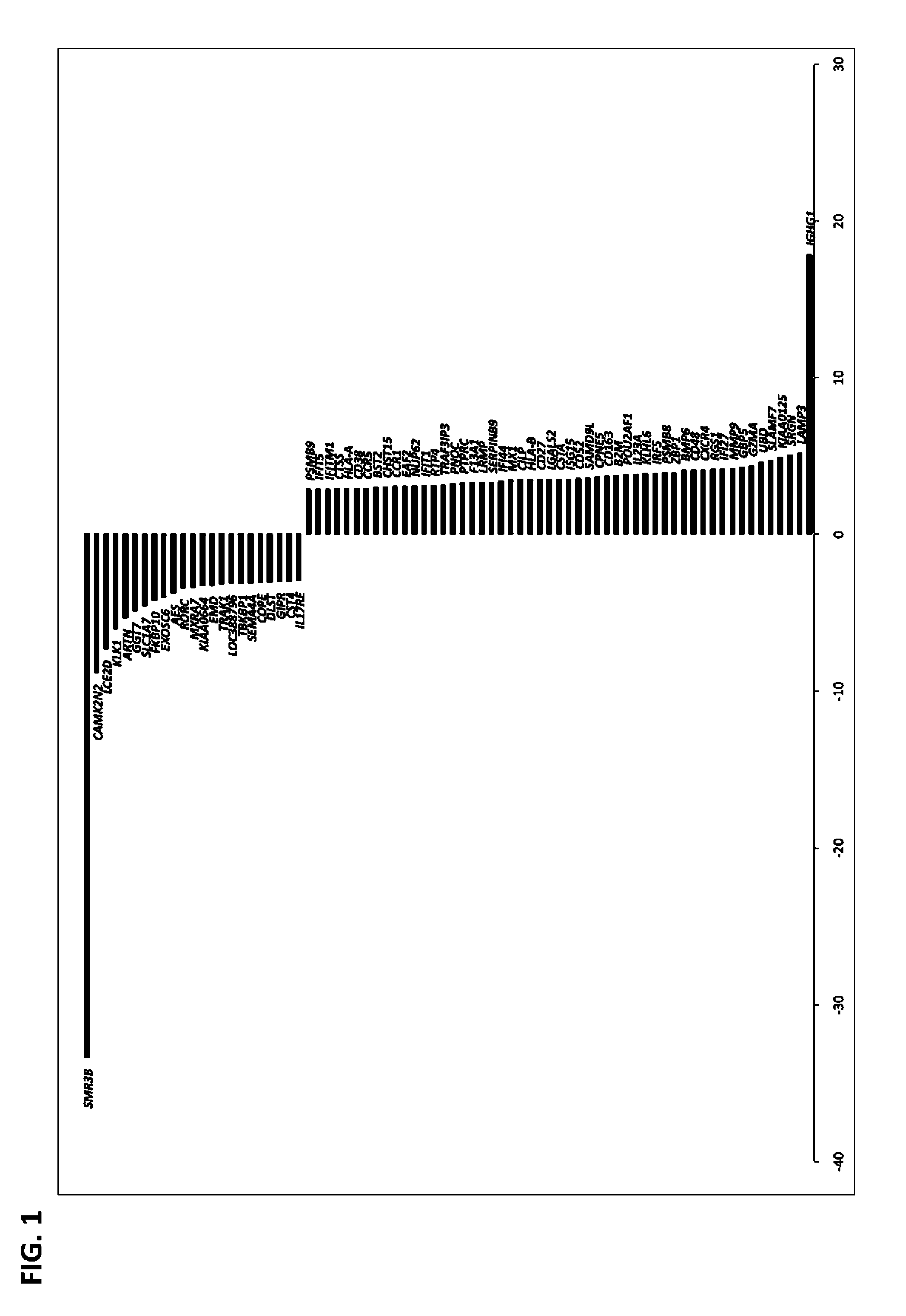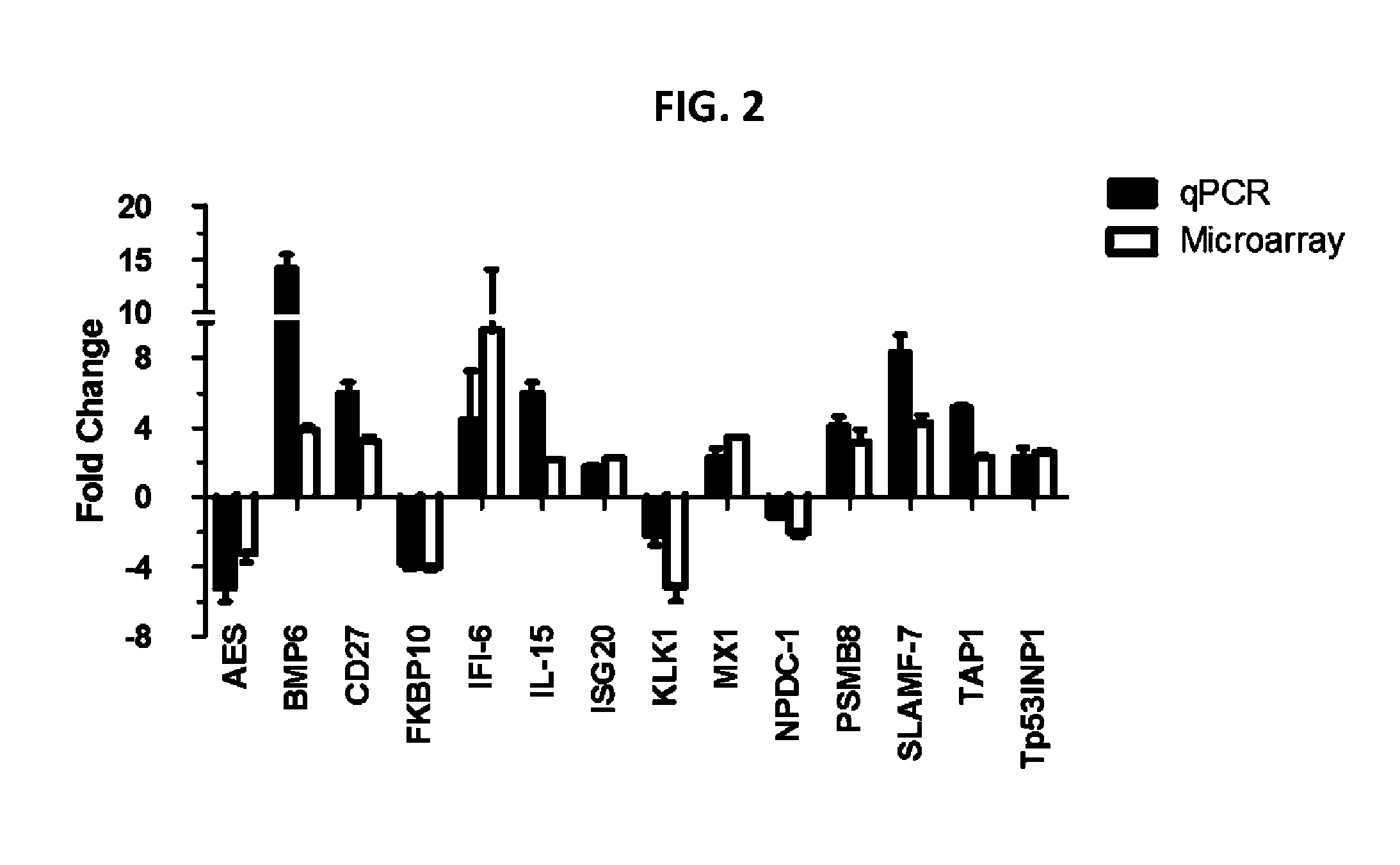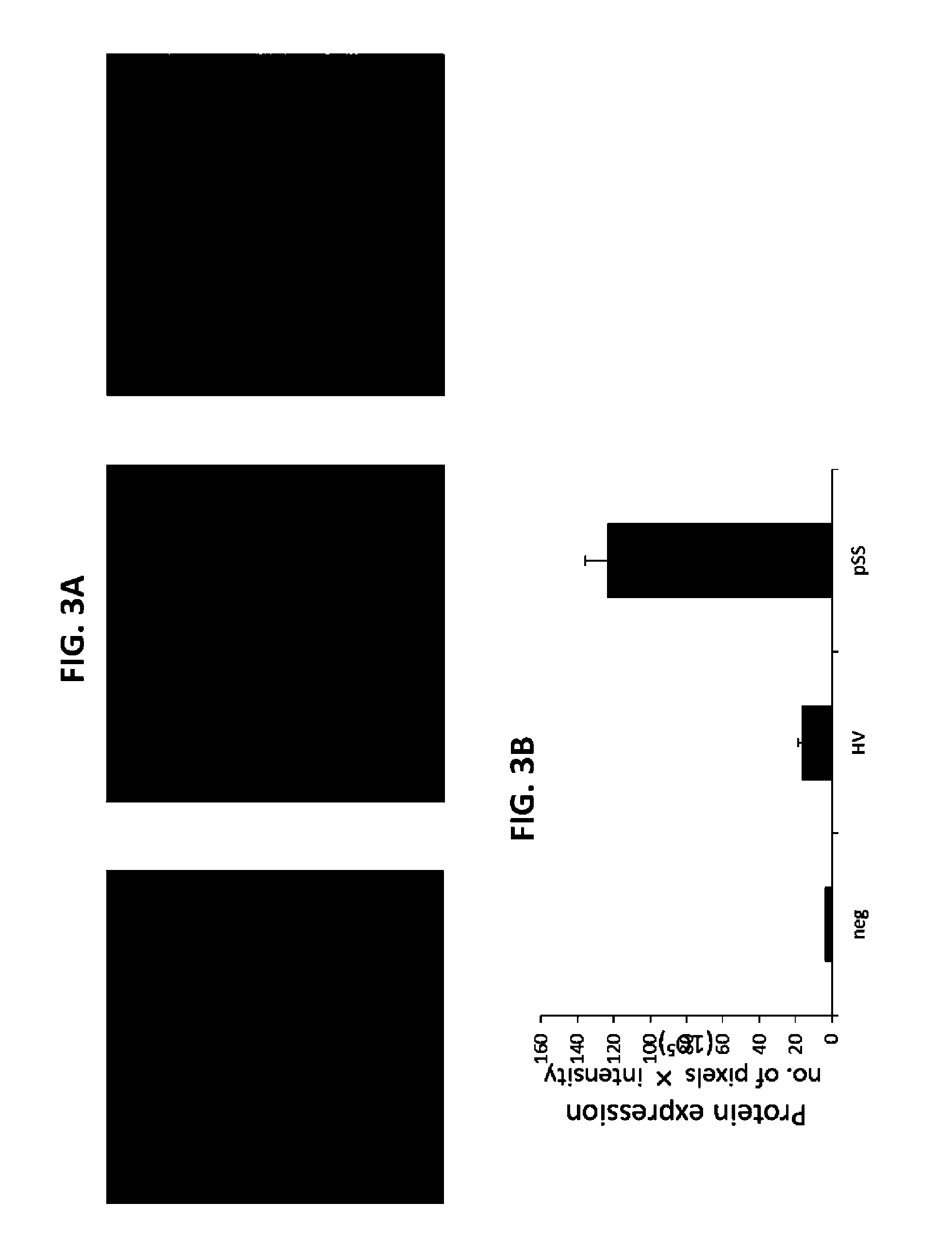Methods for the diagnosis and treatment of sjögren's syndrome
- Summary
- Abstract
- Description
- Claims
- Application Information
AI Technical Summary
Benefits of technology
Problems solved by technology
Method used
Image
Examples
example 1
Overexpression of BMP6 Leads to Loss of Salivary Gland Activity in Sjögren's Syndrome Patients and Mice
[0261]This example describes the finding that expression of BMP6 is significantly increased in patients with Sjögren's syndrome, relative to healthy controls. In addition, overexpression of BMP6 locally in the salivary glands of mice results in the loss of salivary gland fluid secretion as well as changes in the connective tissue of the gland.
Materials and Methods
Patient Selection Criteria
[0262]A subset of five female patients with primary Sjögren's Syndrome in accordance with the European-American consensus group criteria (Vitali, Bombardieri et al., Ann. Rheum. Dis. 61, 554-558, 2002) were selected for microarray analysis along with five age-matched healthy female volunteers. The patients used in the present analysis were all chosen based on low lymphocytic scores (FS of ≦2) and low stimulated salivary flow. The clinical features of the selected study subjects are summarized in T...
example 2
Measurement Circuit for Diagnosis of Sjögren's Syndrome
[0302]This example describes a trans epithelial electronic resistance (TEER) assay in SMGs of AAV2-Cre vector treated St14LoxP / LoxP mice (List et al., Am J Pathol 175(4):1453-1463, 2009). The St14 gene encodes matriptase, which is essential for the maintenance of epithelial integrity, such as in the salivary gland. Upon expression of Cre recombinase in St14LoxP / LoxP mice, St14 is deleted.
[0303]To measure electrophysiologic parameters associated with Sjögren's syndrome, a measurement circuit 20 (see FIG. 10) was established between a detection electrode 22 placed in a salivary gland duct and a reference electrode 24 placed in electrical contact with adjacent oral mucosa. In this particular example, the electrical potential was measured across the ducts of SMGs. A procedure was developed to measure TEER by cannulating the electrode of a transmeter (model FD223, World Precision Instrument, Sarasota, Fla.) in the ducts of SMGs of mi...
example 3
Diagnosis of Sjögren's Syndrome by Detecting BMP6 Expression in the Salivary Gland
[0309]This example describes a method of diagnosing Sjögren's syndrome in a subject by measuring BMP6 levels in the salivary gland. In some examples, such diagnosis is performed before treating the subject. In some examples, the method is used to confirm a diagnosis of Sjögren's syndrome and / or is used in combination with other diagnostic measures.
[0310]A biological sample is obtained from the subject. If a tissue biopsy sample is used, about 1-100 μg of tissue is obtained, for example using a fine needle aspirate. Protein and RNA can be isolated from the tissue using routine methods (for example using a commercial kit). If saliva, tears, blood or a fraction thereof (such as serum), is used, about 1-1000 μl is collected. Saliva, tears, or serum can either be used directly or fractionated using filter cut-offs to remove high molecular weight proteins. If desired, the saliva, tears, or serum can be froze...
PUM
| Property | Measurement | Unit |
|---|---|---|
| Diameter | aaaaa | aaaaa |
| Solubility (mass) | aaaaa | aaaaa |
| Electrical conductor | aaaaa | aaaaa |
Abstract
Description
Claims
Application Information
 Login to View More
Login to View More - R&D
- Intellectual Property
- Life Sciences
- Materials
- Tech Scout
- Unparalleled Data Quality
- Higher Quality Content
- 60% Fewer Hallucinations
Browse by: Latest US Patents, China's latest patents, Technical Efficacy Thesaurus, Application Domain, Technology Topic, Popular Technical Reports.
© 2025 PatSnap. All rights reserved.Legal|Privacy policy|Modern Slavery Act Transparency Statement|Sitemap|About US| Contact US: help@patsnap.com



